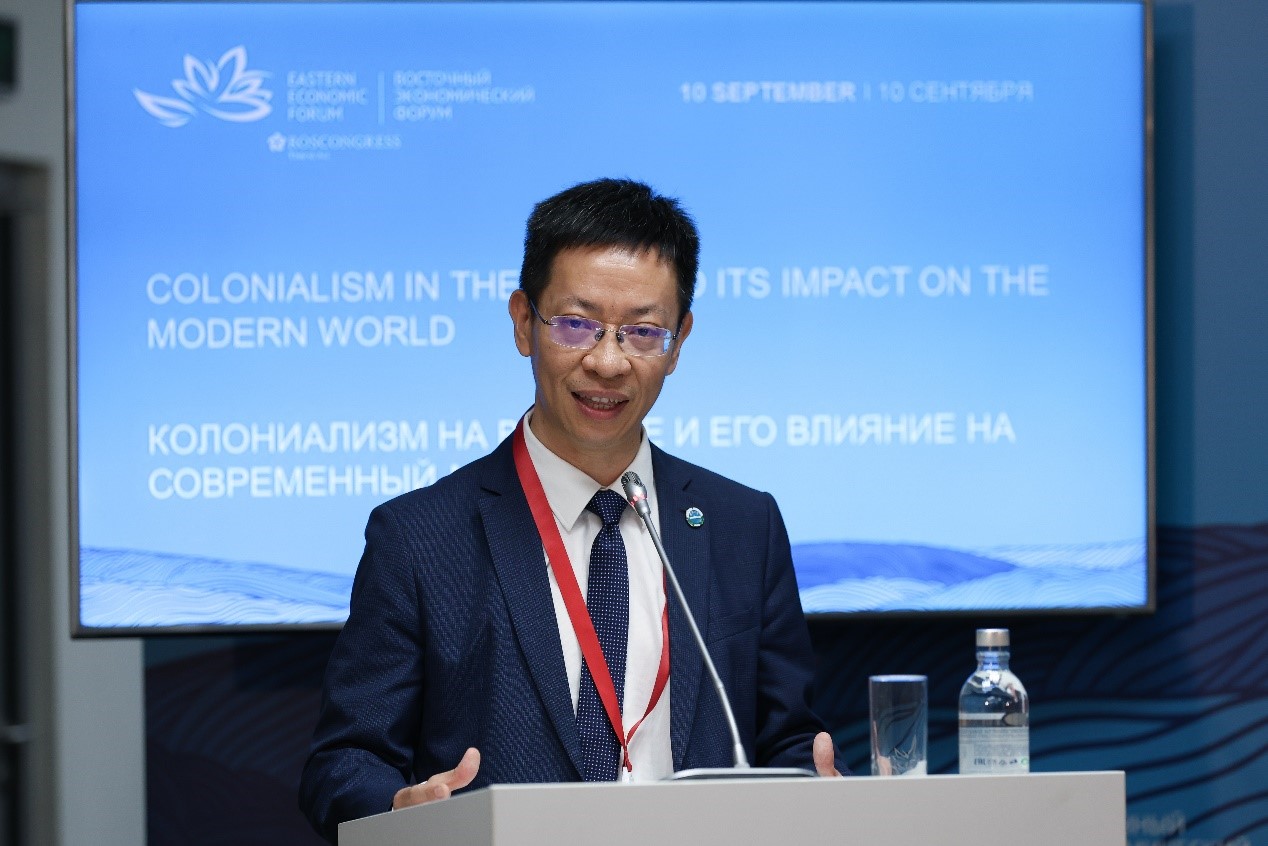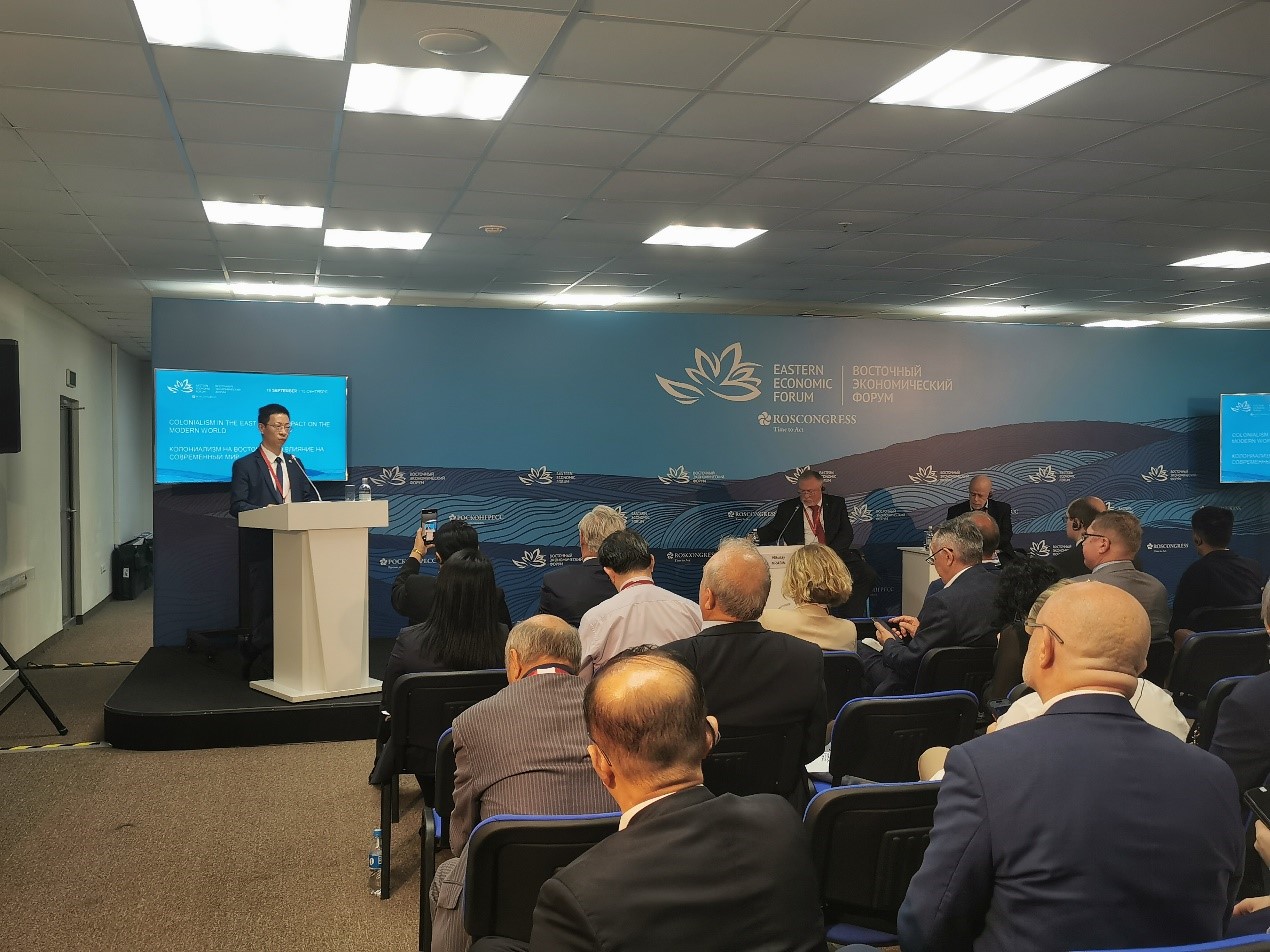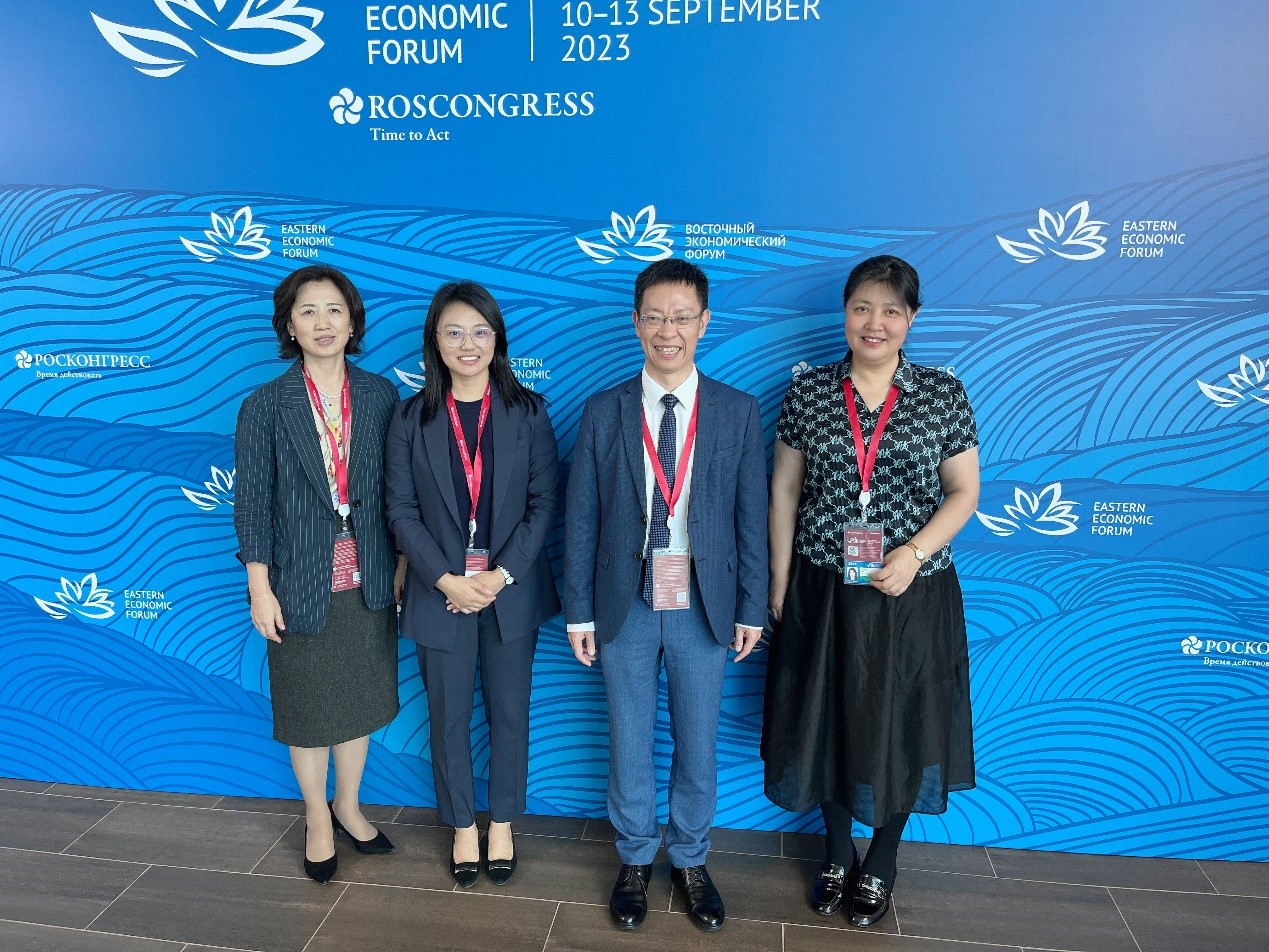From September 10 to 14, 2023, the Eastern Economic Forum in Vladivostok, Russia, was attended by Prof. Yu Miaojie, Deputy Secretary of CPC Committee and President of LNU; Prof. Ma Shuang, Director of the International Exchange Office; Prof. Yin Hong from the School of World Economy and Politics; and Dr. Yin Ruyu, a young researcher at the China Open Economy Research Institute.
On September 10, Yu Miaojie and his delegation attended the opening session of the Eastern Economic Forum, entitled “Eastern Colonization and Its Impact on the Modern World.” Yu Miaojie first delivered his speech, “The Comprehensive Opening of China under the Belt and Road Initiative: A Different Model from the West.” He introduced China’s comprehensive opening strategy under the Belt and Road Initiative from three aspects. First, that global multilateral economic and trade cooperation mechanisms represented by the WTO have been largely replaced by regional economic and trade cooperation mechanisms. In recent years especially, three economic and trade regions—the EU with Germany as the central hub, the North American Economic and Trade Zone with the US as the central hub, and the Asia-Pacific Economic and Trade Zone with China as the central hub—have developed interconnected production chains or value chains. Second, in the face of constantly changing forms of globalization, China continues to promote regional economic and trade cooperation while actively pushing for WTO reform. China’s process of opening up to the outside world has gradually shifted from a “broad-based opening” to a “deep-level” one. Third, in accelerating the construction of a new development pattern, China must promote high-level opening-up on a larger scale, possessing a wider scope and deeper level, by building sea and land channels. The land-based Silk Road will extend eastward, and the maritime Silk Road will expand northward, while simultaneously establishing a China-Mongolia-Russia Free Trade Zone and a China-Japan-South Korea Free Trade Zone. At the end of his speech, Yu Miaojie put forth his belief that the Belt and Road Initiative, in actively developing economic partnerships with countries along the routes, is different from the economic plunder of Western colonialism and the zero-sum competition mindset of the West. It not only benefits the Chinese people but also benefits the people of countries along the routes, offering a path of win-win cooperation for all nations.
The conference was jointly organized by the Far Eastern Federal University, the Russian Historical Society, and the Russian Academy of Sciences. Over 40 experts and scholars from Russia, China, the Philippines, Vietnam, Malaysia, Myanmar, India, and other countries attended the conference. The nations discussed topics such as the practices of China, India, and Russia in overcoming and surpassing Eurocentrism, the universality and originality of China’s development model, and how non-Western countries can break the misconception that “modernization equals Westernization.” Participants agreed that Western countries achieved modernization through colonial expansion, violent plunder, hegemonism, and ruthless exploitation. Driven by capital interests, the West engages in hegemonism and power politics, arbitrarily infringing upon the sovereignty of other countries, restraining and suppressing their development, and undermining international stability and unity. President Yu Miaojie’s speech attracted much interest and attention. He proposed that China’s modernization model, in being different from Western concepts that are driven by capitalistic logic, breaks the misconception that “modernization equals Westernization.” It provides a Chinese solution for exploring better social systems and holds unique advantages and global significance.



